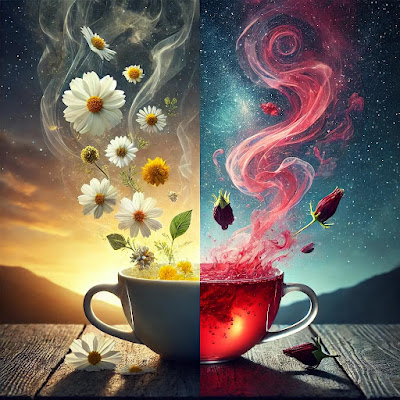GOING WHITE IS ALL RIGHT !!!!!!!!
Like my facebook page if you think this article is awesome!
https://www.facebook.com/medicalplants
==== ====
In recent years, white tea has gained great popularity. Tea connoisseurs everywhere have come
to appreciate white tea's delicate, slightly sweet flavor. Though white tea comes from the camellia
sinensis plant, just like black tea, green tea and oolong tea, there are several significant
differences between white tea and other teas.
Processing - White tea is harvested before the leaves are fully open, when the buds have fine
white hair covering them. This is much earlier than other teas are harvested. In addition, white tea
leaves are not fermented. Rather their leaves are simply steamed and then dried, often right in the
fields. This protects white tea's delicate flavor.
Availability - Less white tea is grown than other types of tea in the world. Most tea gardens
designate just a few tea bushes for early harvest to create white tea. In addition, white tea is
grown in far fewer areas of the world. Most of it is grown in China and Japan, and a little is grown
in small areas of India and Sri Lanka. However, we may find more and more tea gardens
concentrating on white tea as the demand for it grows.
Cost - Because white tea is fairly rare, you'll find that it costs a bit more. However, white tea is
gaining popularity, which means that it's likely that it will become more readily availability, which is
likely to drive down the price.
Flavor - White tea has a very delicate flavor that is slightly sweet. It has a paler color than other
teas. In fact, it may appear that you didn't steep it long enough, if you judge just by the color. It
also has far less aroma than green, oolong or black tea.
Serving method - Do not pour boiling water on white tea leaves; the temperature should be a bit
shy of the boiling point. And, experts recommend that you not use sweetener or milk in white tea; it
should be served plain.
Caffeine Content - White tea has the least caffeine of any tea. White tea contains about 15 mg of
caffeine per serving, while black tea contains 40 and green tea contains 20. This makes white tea
an excellent choice for the caffeine sensitive.
Health Benefits - White tea contains all the benefits usually associated with drinking green tea, but
with additional benefits, as well. Like green tea, white tea holds antioxidants in their natural state.
These anti-oxidants have been shown to:
Reduce your risk of cancer - Many different studies have supported the finding that green tea and,
because of its similarity, white tea, can prevent and possibly even help treat cancer. Several
studies have shown that Asian cultures, where tea drinking is most common, to have significantly
lower incidences of many forms of cancer. Some other studies have suggested that a compound
in these teas can actually inhibit the growth of cancer cells.
This compound may prevent cancer in healthy people, and may even be able to slow down
cancer's progress in those already battling the disease. It appears that tea may be most effective
at preventing bladder, colon, rectal, esophageal, bladder, liver, lung, pancreatic cancer, breast
cancer and prostate cancer.
Lowers Cholesterol - Tea has been shown to be effective in lowering LDL cholesterol. Tea also
appears to inhibit the formation of abnormal blood clots. These clots, also known as thrombosis,
are the leading cause of heart attacks and strokes. Many studies have shown that when coupled
with a low cholesterol diet, participants who drank tea reported lowering cholesterol levels more
than participants on the same diet who did not consume tea daily.
Ease Rheumatoid Arthritis -Tea's anti-oxidants may also be able to prevent and reduce the
severity of rheumatoid arthritis. Several studies have shown dramatic reduction in the incidents of
arthritis in mice that were fed tea. In addition, the mice that did develop arthritis developed a milder
form with an onset later in life. In addition, rheumatoid arthritis is far less common in the Asian
world, where tea drinking is much more frequent.
Help Lose Weight - Tea's combination of catechins and caffeine appear to speed up the
metabolism and may help with weight loss. It may also help regulate insulin in the body, which can
be beneficial for diabetics.
Prevent Alzheimer's disease - Studies suggest that tea drinkers may also be less likely to develop
Alzheimer's disease.
Improve your immune system - One benefit of drinking white tea that is not found in drinking other
forms of tea is that white tea seems to be especially good at improving your immune system,
which makes your body more effective at fighting off bacteria and viruses. White tea seems to be
especially effective at killing the staph and strep viruses.
So, as you can see, white tea is very much like other teas, and very different at the same time.
What this means to most of us is that it's a great tea to add to our usual list of treasured teas.
Once you try white tea, you're certain to want to drink it just as regularly as the other varieties of
tea you've grown to love.
Jon Stout is Chairman of the Golden Moon Tea Company. For more information about tea, white
tea [http://www.goldenmoontea.com/whitetea] and wholesale tea
[http://www.goldenmoontea.com/WholesaleTea] go to goldenmoontea.com
Article Source:
http://EzineArticles.com/?expert=Jon_Stout
==== ====
Like my facebook page if you think this article is awesome!
https://www.facebook.com/medicalplants
==== ====


Comments